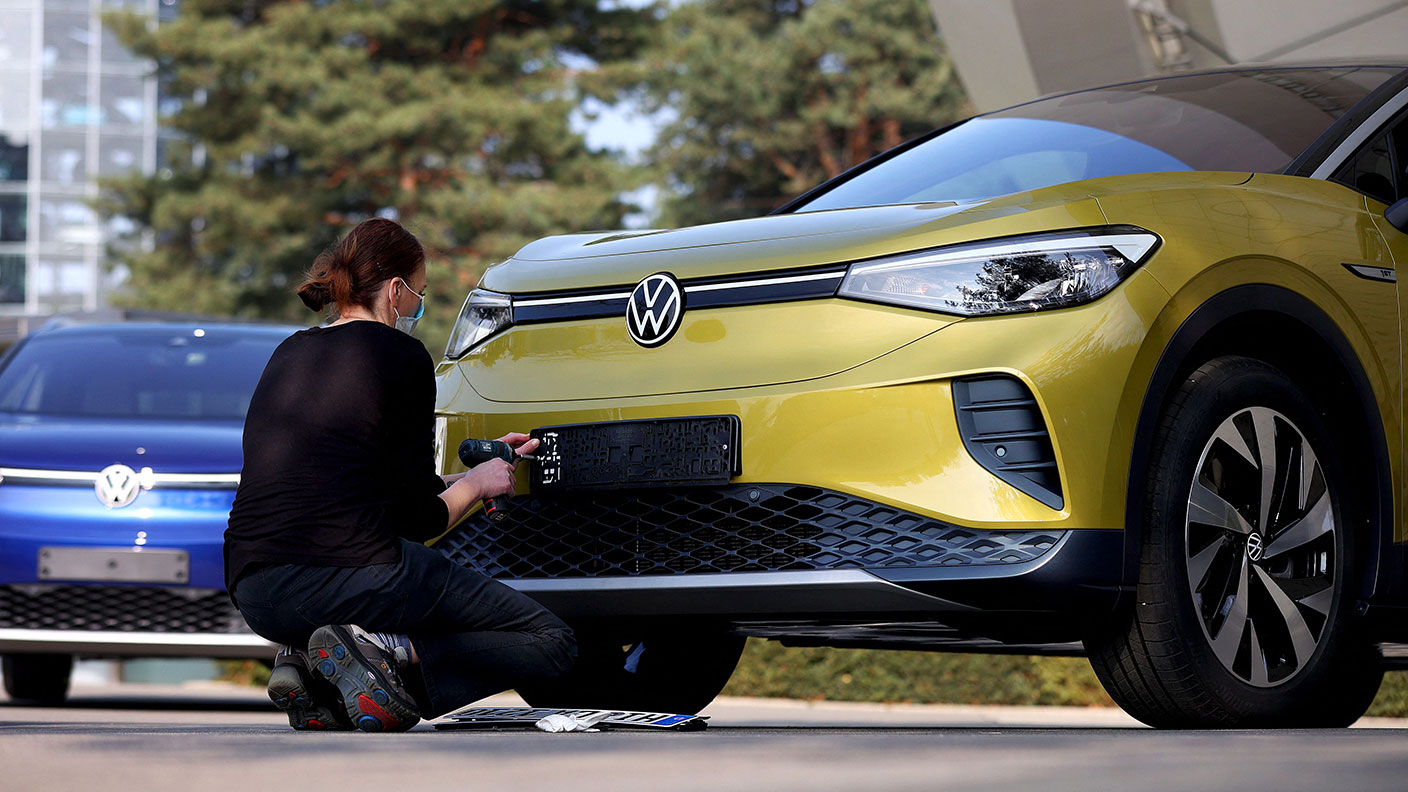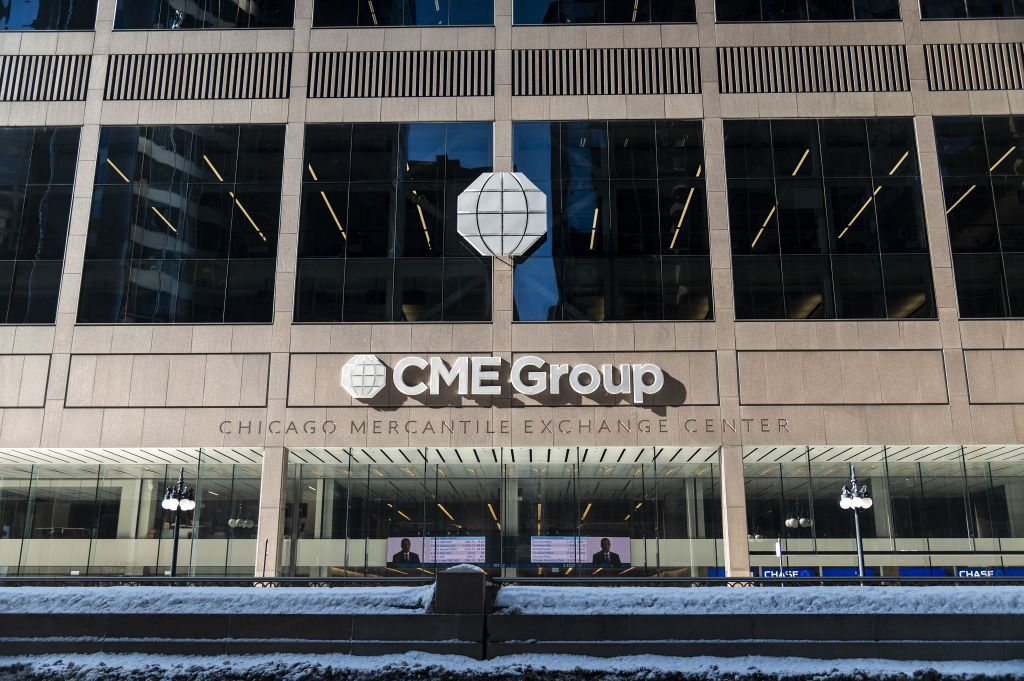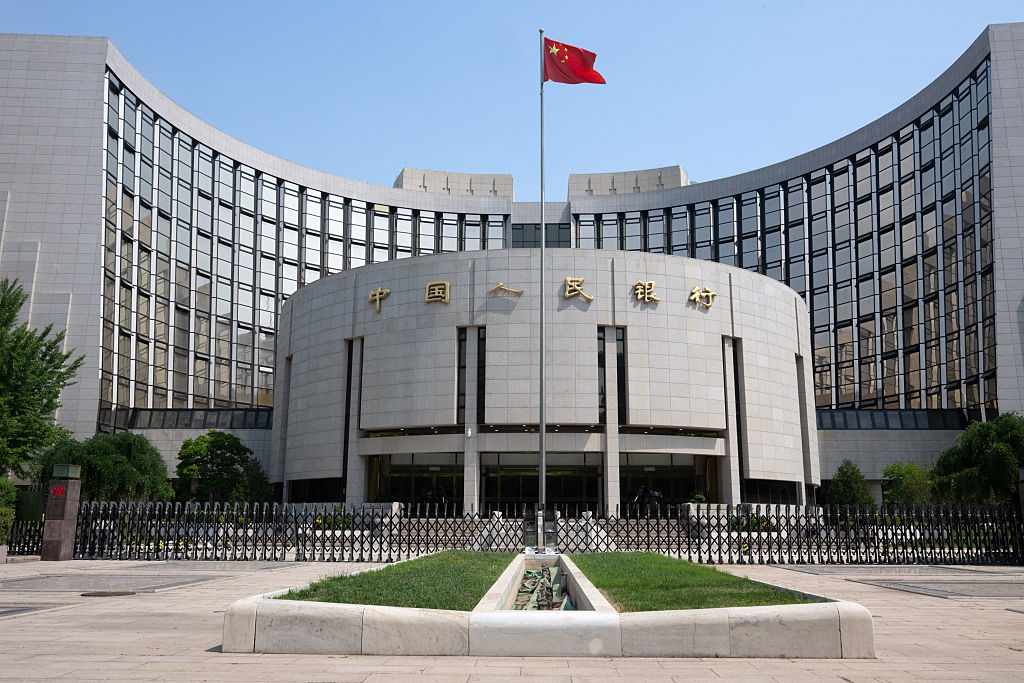Why you should short Tesla, the electric-car maker running on empty
Electric-vehicle maker Tesla is absurdly pricey and faces stiff competition from rivals, says Matthew Partridge. Here’s how to play it.


Get the latest financial news, insights and expert analysis from our award-winning MoneyWeek team, to help you understand what really matters when it comes to your finances.
You are now subscribed
Your newsletter sign-up was successful
Want to add more newsletters?
Electric-vehicle manufacturer Tesla (Nasdaq: TSLA) has epitomised the boom in tech shares. Despite predictions from a range of pundits that the surging stock was about to slump, it has gone from strength to strength, while the group has started turning a profit. Each of my three recommendations that you short it, in March 2017, April 2018 and March 2019, has lost money. Even though Tesla’s shares have fallen after CEO Elon Musk’s foray into bitcoin, they have still risen 17-fold in two years.
Nevertheless, there are some solid reasons to think that the share-price surge may be overdone. Firstly, the enthusiasm for electric cars among governments around the world, with the UK announcing last November that it planned to ban the sale of petrol and diesel cars from 2030, is a double-edged sword for Elon Musk’s company. This is because the car industry is now pouring billions of dollars into its own models, with General Motors alone announcing at the start of this year that it is going to invest $27bn in electric-vehicle development.
Rivals are catching up
Perhaps the strongest potential competitor is Volkswagen (VW), which is winning plaudits for its new generation of electric vehicles. VW already has ambitious plans to overtake Tesla in the number of electric vehicles that it sells. Meanwhile, car companies are also becoming more environmentally friendly in terms of the amount of carbon that is produced during the manufacturing process. This is important because Tesla currently makes the vast majority of its profits from selling carbon credits to companies such as Stellantis (formed out of the merger between PSA and Fiat Chrysler), which recently announced that it would stop buying credits from Tesla.
Try 6 free issues of MoneyWeek today
Get unparalleled financial insight, analysis and expert opinion you can profit from.

Sign up to Money Morning
Don't miss the latest investment and personal finances news, market analysis, plus money-saving tips with our free twice-daily newsletter
Don't miss the latest investment and personal finances news, market analysis, plus money-saving tips with our free twice-daily newsletter
Even if Tesla can find someone else to buy its carbon credits, its valuation seems excessive. Its current market capitalisation of £427bn means that it is worth seven times more than General Motors and more than Toyota, Volkswagen, Daimler and Ford put together. Another sign of its overvaluation is a 2022 price/earnings (p/e) ratio of 101 and a multiple of 16 times current sales, figures that would seem excessive for an internet start-up, let alone a capital-intensive car company likely to find it very hard to scale up its production to the levels that would justify such a valuation.
Tesla’s share price has declined by nearly 30% from its peak at the start of this year, which suggests to me that investors are finally beginning to turn sour on the company. So I would recommend going short against Tesla for a fourth time at the current price of $637. However, given Musk’s ability to move markets in both directions, I would suggest that you do so at £3 per $1, and set a stop-loss at $967, which gives you a total downside of $990.
Trading techniques: dividends deliver
Last year was brutal for income investors. More than half of the companies in the FTSE 100 decided to cut, defer, or even cancel their payouts to shareholders. In some cases this was a voluntary measure in order to conserve cash during a time of uncertainty. In others, notably in the banking sector, pressure from regulators prompted companies to act. The outlook has improved, however. Investment platform AJ Bell notes that while a few companies have cut dividends so far this year, all the indications suggest that listed firms will be increasing them by around a fifth in 2022.
But what might this mean for share-price returns? In theory a firm’s decision to increase dividends should have a neutral impact on share returns, since any money that the shareholders receive will be balanced by the fact that a company has less money to pay down debt or put back into the business.
Some people even argue that it could be a negative sign that the company is running out of ways to reinvest money profitably. However, increasing dividends are usually seen as a positive sign: the company is generating plenty of cash. A study by Jason Turkiela of the University of Oregon in 2014 of a sample of US equities between 2002 and 2012 found that the decision to increase quarterly dividends did lead to a higher share price in the next few days, although most of the rise took place in the first day. Another analysis by Ned Davis Research and Hartford Funds found that between 1973 and 2020, $100 invested in an index of firms that had either increased their dividend or started paying one in the previous year, would have grown to $11,346, compared with $3,764 for the S&P 500. But $100 invested in those who had cut or eliminated their payout would have shrunk to $56.
How my tips have fared
In the past six weeks three of my six long tips have risen. Media group ITV climbed from 122p to 128p, cruise-ship operator Norwegian Cruise Line increased from $27.97 to $31.90 and construction firm Morgan Sindall Group went up from 1,918p to 2,205p.
However, US housebuilder DR Horton fell from $95.72 to $95.29 and spread-betting firm Plus500 declined from 1,514p to 1,511p. What’s more, while transport group National Express fell from 309p to 304p, it dipped below 290p, the level at which I suggested that you close your position. Overall, then, my long tips (counting National Express) are making a total profit of £6,619, up from £6,380,
My short tips are also a mixed bag, with three appreciating and two falling. Electric-lorry manufacturer Nikola increased from $10.29 to $14.96, cloud-computing specialist Snowflake went up from $230 to $238 and hydrogen-fuel electric-vehicle maker Plug Power increased from $25.24 to $30.70.
However, online grocery firm Ocado fell from 2,059p to 1,889p. Bitcoin also fell below the $40,000 level at which I suggested that you started shorting it, and is currently at $34,132. In total my shorts are making profits of £2,561, up from £2,380.
I now have five long tips (ITV, Norwegian Cruise Line, Morgan Sindall, DR Horton and Plus500) and five shorts (Nikola, Snowflake, Plug Power, Ocado and bitcoin), which is a good balance, so I don’t recommend closing any more positions.
However, I would increase the stop-loss on DR Horton to $64 (from $63). I also suggest you reduce the level at which you cover Snowflake to $410 (from $420) and cut the price at which you cover Nikola to $22 (from $23).
Get the latest financial news, insights and expert analysis from our award-winning MoneyWeek team, to help you understand what really matters when it comes to your finances.

-
 The rare books which are selling for thousands
The rare books which are selling for thousandsRare books have been given a boost by the film Wuthering Heights. So how much are they really selling for?
-
 Pensions vs savings accounts: which is better for building wealth?
Pensions vs savings accounts: which is better for building wealth?Savings accounts with inflation-beating interest rates are a safe place to grow your money, but could you get bigger gains by putting your cash into a pension?
-
 Should you sell your Affirm stock?
Should you sell your Affirm stock?Affirm, a buy-now-pay-later lender, is vulnerable to a downturn. Investors are losing their enthusiasm, says Matthew Partridge
-
 Profit from pest control with Rentokil Initial
Profit from pest control with Rentokil InitialRentokil Initial is set for global expansion and offers strong sales growth
-
 In the money: how my trading tips fared in 2025
In the money: how my trading tips fared in 2025The success of the open positions offset losses on closed ones, says Matthew Partridge
-
 Coreweave is on borrowed time
Coreweave is on borrowed timeAI infrastructure firm Coreweave is heading for trouble and is absurdly pricey, says Matthew Partridge
-
 Circle sets a new gold standard for cryptocurrencies
Circle sets a new gold standard for cryptocurrenciesCryptocurrencies have existed in a kind of financial Wild West. No longer – they are entering the mainstream, and US-listed Circle is ideally placed to benefit
-
 Profit from other investors’ trades with CME Group
Profit from other investors’ trades with CME GroupCME Group is one of the world’s largest exchanges, which gives it a significant competitive advantage
-
 Investors need to get ready for an age of uncertainty and upheaval
Investors need to get ready for an age of uncertainty and upheavalTectonic geopolitical and economic shifts are underway. Investors need to consider a range of tools when positioning portfolios to accommodate these changes
-
 How much gold does China have – and how to cash in
How much gold does China have – and how to cash inChina's gold reserves are vastly understated, says Dominic Frisby. So hold gold, overbought or not